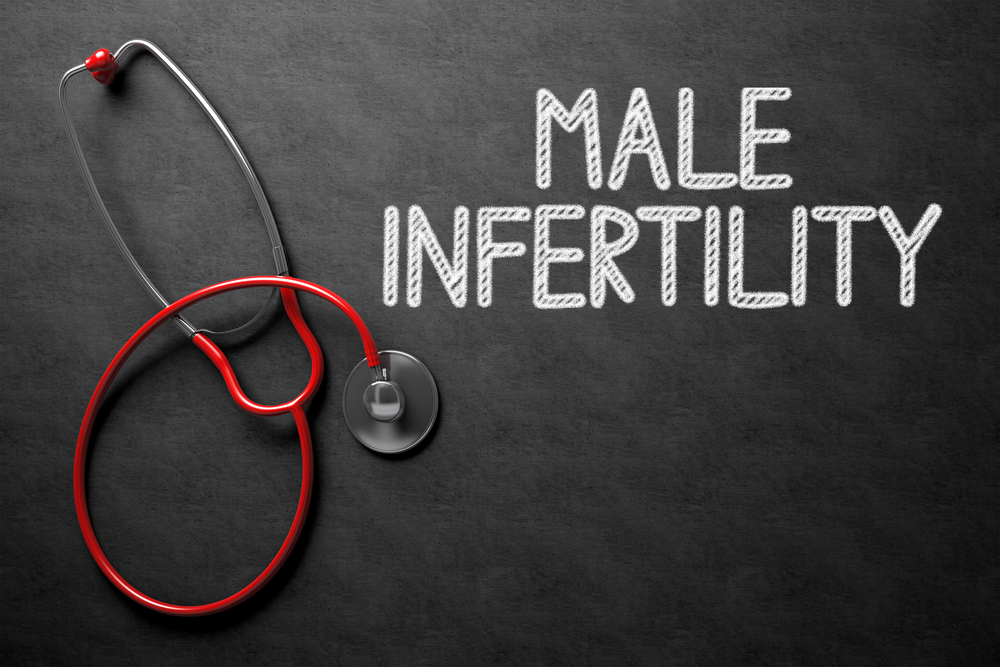Did you know that there are about 50 million couples in the world who are dealing with infertility? That is quite a large number, isn’t it? Unfortunately, that is really how prevalent the problem is. And, for every five of these couples who cannot conceive a child, one is because the male partner has fertility issues.
In fact, a study has found that 1 in 20 men is afflicted with some sort of fertility problem, and about 1 in 200 has zero sperm in his ejaculate.
What causes infertility in men?
Infertility in men is primarily brought about by issues in sperm transport or sperm production. Sometimes, it can be due to past and existing health problems, and medical procedures and treatments administered to them. Below are the usual suspects of male infertility that you have to be wary of:
Unhealthy sperm
If at least one of your testicles is not functioning right, whether due to genetic causes or injuries, you are in danger of producing low-quality sperm. For sperm to be healthy, they should grow and develop fully. There should be at least 15 million of them in a milliliter of your semen.
Disrupted sperm transport
Sperm that are produced in your testicles pass through delicate tubes to get to your semen. If there are blockages along the way, they will not be able to mix with your semen and be ready for ejaculation. Prostate-related diseases, infections, vasectomy, and absence of vas deferens are oftentimes the culprits.
Hormonal problems
If there are abnormalities in the hormone production or levels in your body, your sperm may be affected. Hormone imbalances are often caused by pituitary tumors, anabolic steroid abuse, and lack of the luteinizing hormone (LH) and the follicle-stimulating hormone (FSH).
 Varicocele
Varicocele
Varicocele is a medical condition characterized by the inflammation of the veins that are found in the sac that holds your testicles. If you have it, you will experience low sperm quality and sperm count.
Undescended testicles
Some men do not have one or both of their testicles descended from their abdomens into their sacs. This is a medical issue that usually happens early in the fetal development. If you have it, you are very likely to encounter fertility problems as an adult.
Tumors
Tumors, whether nonmalignant or cancerous, can affect the pituitary glands and the other glands that are involved in male reproduction. And, if they are eliminated through surgery, chemotherapy, or radiation, the side effects of the treatment procedure can also have an effect on male fertility.
Chromosome defects
There are certain genetic syndromes that can lead to the abnormal growth and development of a man’s reproductive organs. For example, there is the Klinefelter’s syndrome, wherein a male is born with one Y chromosome and two X chromosomes, instead of one Y and one X.
Celiac disease
Celiac disease is a digestive disorder in which you get a negative reaction every time you eat gluten, a protein commonly found in barley, wheat, and rye. If you have it, your small intestine obtains damage every time it is exposed to gluten, and you experience bloating, fatigue, diarrhea, anemia, and weight loss. It can also affect your fertility.
Obesity
Being obese can be harmful to your fertility. The extra weight, high levels of sugar or fats, and other factors can result to hormonal changes that can negatively impact your sperm production and sperm count.
History of surgery
If you underwent certain surgical procedures, you may start having problems with your fertility. Some good examples of these are those that involve the prostate, testicles, and hernia. Men who have had a vasectomy or inguinal hernia repairs are also likely to come across fertility issues.
Overexposure to toxins
Elements contained in xylene, benzenes, herbicides, pesticides, paint, organic solvents, and others can cause low quality sperm production and reduced sperm count if you come into contact with them for an extended period of time.
Radiation
Subjecting yourself to high doses of or prolonged exposure to radiation puts your sperm count in danger.
Alcoholism
Drinking alcohol often and in large volumes not only hurts your liver, but it can also reduce your body’s testosterone levels, and lead to erectile dysfunction. It can lower your sperm production too.
Drug addiction
Drugs, such as anabolic steroids, which are for the purpose of muscle growth and development can have negative effects on your infertility. They can make your testicles shrink and decrease the amount of sperm produced in there. Meanwhile, usage of drugs like marijuana and cocaine can result in poor quality and reduced sperm volume.
Smoking
Several studies have found that men who do not smoke have significantly healthier sperm quality and count than those that do. Thus, quit your cigarette and tobacco habit right away if you want to protect your sexual health. You should also stay away from secondhand smoke as it can also negatively affect your fertility.
What are the common signs and symptoms of male infertility?
Not all cases of infertility in men trigger noticeable signs and symptoms. But, if the warning signs do appear, they usually include:
 Reduced libido
Reduced libido- Smaller volumes of ejaculate
- Difficulty ejaculating
- Having trouble getting an erection
- Cannot maintain an erection
- Pain in the testicular region
- A lump or swelling in the testicles
- Recurring lung and respiratory infections
- Loss of the ability to grow facial hair
- Body hair loss
- Gynecomastia (or abnormal growth of breast)
- Difficulty smelling
- Low sperm count (i.e. < 39 million per ejaculate or <15 million sperm per mL of semen)
What should you do if you manifest the common male infertility symptoms?
The moment you experience any of the common signs and symptoms of infertility in men, you should go see a doctor right away. There is no reason to delay a medical checkup. Getting an accurate diagnosis should be your topmost priority so that you can receive the right treatment solution to remedy your problem as soon as possible.



